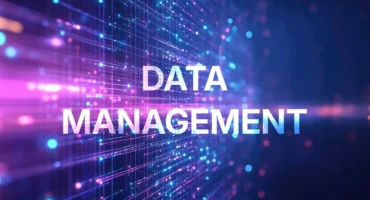
Seth Rao
CEO at FirstEigen
Data Observability for Data Engineers: Why It Matters for Optimizing Your Pipelines?
Do you work with data? If you do, then you need to care about data observability. Data observability is so important that anyone who works with data should care about it and its many benefits to an organization. It’s about making all the pieces and parts of a data pipeline visible to improve the pipeline and overall data quality.
Quick Takeaways
- Data observability opens data pipelines to continual real-time examination
- Data observability relies on five key pillars: freshness, distribution, volume, schema, and lineage
- Data observability benefits everyone in an organization, but particularly data managers, data engineers, data scientists, data analysts, and DevOps teams
- Data observability particularly benefits company management by helping them make better-informed operational and strategic decisions
What is Data Observability?
Data observability is how IT professionals make all the pieces and parts of a data pipeline visible for examination. Data observability lets professionals understand, manage, and troubleshoot their organization’s data health. It’s an effective way to identify what is and isn’t working in a data management system and suggest ways to improve the data workflow and overall data quality.
The key to data observability is tracking how data moves across various sources, applications, databases, and servers. It’s not just about improving data quality; data observability is about examining the many factors that affect data quality.
To provide the necessary insights into the functioning of a real-world data pipeline, IT teams need to observe data as it flows through all parts of the pipeline, from initial creation or ingestion through final reporting and analysis. A fully functioning data observability solution can identify issues as they develop and automate responses in real time.
How does a data observability solution track the health of a data management system? Most solutions rely on five key metrics or pillars of data observability, as follows:
- Freshness. This metric measures how current the data is in a system. In general, fresher data is more reliable and more useful.
- Distribution. This metric tracks whether data values fall within a pre-defined range. Data outside the acceptable range is suspect.
- Volume. This metric measures whether data is complete—that is, whether all the fields in a record contain appropriate information.
- Schema. This metric examines the organization of the data pipeline itself. Problems in data organization directly affect the quality of the data itself.
- Lineage. This metric tracks data as it flows through the pipeline. Tracking data lineage is essential for determining where errors enter the system.
A robust data observability solution tracks these five metrics to evaluate the system and identify areas that need to be fixed and improved. Because bad data costs organizations an average of $12.9 million a year, both directly and indirectly, data observability is essential to troubleshoot data quality issues and identify ways to improve data management systems.
Why is Data Observability Important—And to Whom?
What does data observability bring to your organization? And who in your organization most benefits from data observability? You might be surprised to see how deep data observability can reach your organization—and how many people can benefit from it.
Data Observability Is Important to Data Managers
Data managers supervise an organization’s various data systems. The typical data manager is responsible for storing, organizing, and analyzing the organization’s data. This must be done effectively, efficiently, and securely.
A data manager benefits from how data observability helps to keep data flowing efficiently through the pipeline. The data manager is concerned with the entire health of the data management system, which is precisely what data observability addresses. The more data observability can help fine-tune the data pipeline, the more it benefits data management.
Data Observability is Important to Data Engineers
Data engineers design and build the systems used by data managers, data scientists, and data analysts. These are systems designed to collect, store, and analyze the data used by an organization.
Data observability is essential for data engineering. Data engineers rely on data observability to help them improve existing data systems and build more efficient systems in the future. Data engineers are interested in more than just ensuring high-quality data—they’re also interested in developing high-quality data systems. Data observability is key to achieving that goal.
Data Observability is Important to Data Scientists
Data scientists use data to solve complex problems. A data scientist is like a high-tech detective who employs various skills—mathematics, computer science, data analysis, and more—to identify critical issues and mitigate them. Data scientists depend on data observability to design the smooth-running and constantly evolving data systems they need to extract meaning from massive amounts of data.
Data Observability is Important to Data Analysts
A data analyst is much like a data scientist but more focused on immediate real-world issues. Data analysts examine collected data to extract actionable insights that can better inform both operational and strategic business decisions. A data analyst depends on data observability to ensure the availability of clean and accurate data to analyze.
Data Observability is Important to DevOps Teams
When you combine development and operations, you get DevOps. DevOps joins formerly siloed teams and helps them work together to better serve the organization’s and its customers’ needs. The DevOps ethos inspires collaboration between application development, engineering, IT, operations, security, and other departments that converts traditional project boundaries into a continuous cycle of development and improvement.
The success of DevOps depends on robust data observability. DevOps teams need to constantly monitor the pulse of their systems and data. Data observability provides the real-time monitoring and analysis that DevOps requires. DevOps teams use the core tenants of data observability to gain actionable insights into data movement and quality, enabling them to predict future behavior and make better-informed strategic designs.
Data Observability is Important to Management
The insights gleaned by data analysts and data scientists help management make better decisions. Management also benefits from the more efficient and effective product development enabled by the collaboration between DevOps teams.
All of these functions—data analysis, data science, DevOps, and more—benefit from data observability, which makes management the biggest beneficiary of what data observability brings to an organization. There’s a reason why 90% of IT leaders say that data observability is essential to their business—it produces higher quality data that leads to better decision-making.
Data Observability is Important to Everyone
Ultimately, data observability benefits everyone in an organization, no matter their level or function. Everyone in the organization benefits from the improved insights and analysis enabled by the higher quality data resulting from data observability’s impact on the organization’s data systems. Warehouse staff and manufacturing workers benefit from improved inventory management, salespeople and marketing teams benefit from more robust customer insights, financial and accounting staff benefit from more accurate financial data with which to work. Data observability ensures that data systems produce the highest quality data possible and identify and rectify potential issues before they become major problems.
Let DataBuck Help Improve Your Organization’s Data Observability
As you can see, data observability impacts virtually every department, team, and individual in an organization. When you want to improve your organization’s data observability and data quality, turn to the data experts at FirstEigen. Our DataBuck data quality management solution automates more than 70% of the traditional data monitoring process and uses machine learning to automatically generate new data quality rules. With DataBuck as part of your organization’s data observability platform, you know you’ll have the highest-quality data possible.
Contact FirstEigen today to learn more about how data observability can benefit your organization.
Check out these articles on Data Trustability, Observability & Data Quality Management-
FAQs
Data observability helps data engineers quickly detect and resolve issues within data pipelines. It improves data accuracy, boosts operational efficiency, and minimizes downtime by ensuring smooth data flow. Engineers can rely on observability tools to maintain data integrity across all systems.
Data observability provides real-time insights into data pipelines, allowing engineers to address issues before they impact operations. It reduces manual monitoring efforts and increases the visibility of potential bottlenecks, making workflows more efficient and reliable.
Common use cases include monitoring data pipelines for anomalies, ensuring data quality, and identifying issues that cause system slowdowns. It also helps track data lineage, which is crucial for regulatory compliance and internal audits.
As data systems become more complex, data observability helps engineers maintain control over the flow of data. It ensures that data remains reliable, accurate, and readily available, which is critical for decision-making and operational efficiency in modern enterprises.
Observability in DevOps focuses on system performance and health, while data observability monitors data flow, quality, and pipeline integrity. Data observability ensures that the data itself is accurate, while DevOps observability ensures that the systems running the data are functioning properly.
Data observability tools allow engineers to quickly identify where and why data issues occur by providing visibility into the entire pipeline. This enables faster root cause analysis and resolution, minimizing operational disruptions.
DataBuck helps engineering teams by automating the monitoring of data pipelines, flagging anomalies, and ensuring data quality. It integrates easily with existing workflows, offering clear insights that help engineers resolve issues more efficiently.
Discover How Fortune 500 Companies Use DataBuck to Cut Data Validation Costs by 50%
Recent Posts
Get Started!



